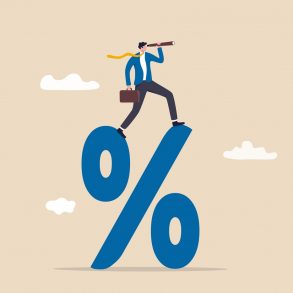Weaker-than-expected economic data may have thrown a splash of cold water on Canada’s current economic recovery, but isn’t likely to figure into the Bank of Canada’s interest rate decision on Wednesday, say experts.
In recent weeks, markets have had to digest a decline in second-quarter GDP, inflation at a near-decade high and unaffordable house prices in many parts of the country.
Figures released last week from Statistics Canada show the economy shrank 0.3%—or 1.1% on an annualized basis—in the second quarter, ending a nine-month streak of expansion. BMO Chief Economist Douglas Porter called the figures “shockingly weaker than expected,” and added that preliminary figures suggest the contraction continued into July.
At the same time, inflation reached 3.7% in July, the third consecutive monthly reading that has come in above the Bank of Canada’s neutral range of 1.75% to 2.75%.
On top of that, despite a moderation in home price growth in recent months, prices remain near record highs as housing supply remains near historic lows.
In August, the average selling price in the Greater Toronto Area rose 12.5% year-over-year to $1,070,911, according to the Toronto Regional Real Estate Board. In the Greater Vancouver Area, a supply shortage pushed the average price for all residential property types to $1,176,600, up 13.2% from last year.
What to Expect from the BoC Decision
We know that rate hikes aren’t on the table at this point, and won’t be until at least mid-2022, based on consistent guidance from the Bank of Canada.
The BoC also isn’t expected to announce any additional changes to its bond-buying, or “Quantitative Easing” (QE) program. The BoC has already reduced its bond purchases from a peak of $5 billion a week during the pandemic to $2 billion as of its July rate meeting. The additional market liquidity helped keep 5-year bond yields—and by extension, 5-year fixed mortgage rates—lower than they otherwise would be.
Observers will be looking for any response from the Bank in addressing the recent data and housing affordability concerns, although it will likely keep its comments to a minimum due to the current election campaign.
“If the Bank of Canada were to talk up the risks following the weaker [GDP] report, it runs the risk of being pulled into the election campaign,” BMO’s Benjamin Reitzes wrote in a recent research note. “Accordingly, in an effort to remain apolitical, expect the bank to soft-pedal the weakness in growth, and emphasize that there’s plenty of uncertainty.”
Scotiabank’s Derek Holt agreed, writing, “I suspect we’ll get a short-and-sweet statement that says the BoC is reviewing and see you in October (while) sounding either more or less upbeat or downbeat.”
“…the tight connections between the central bank and government policy, plus a history of staying out of the fray during election campaigns, should make it a non-event for the most part,” he added.
Others see the latest weaker-than-expected data and potential risks from the Delta variant of COVID-19 as just a minor setback in the economic recovery, which shouldn’t have much impact on current forecasts both here and south of the border.
“In spite of the risk that the Delta variant could slow the recovery, the Federal Reserve (Fed) and the Bank of Canada (BoC) have maintained an optimistic view of the economic outlook,” noted economists from TD Economics. “The expectation remains that the economies of the U.S. and Canada will be fully recovered by the second half of 2022.”
As a result, both the Fed and BoC are “poised to tighten policy in the coming months through an adjustment to their QE programs, and with the start of the rate hiking cycle coming within the next 18 months,” they added.
The Bank will announce its interest rate decision on Wednesday, September 8, at 10 a.m. ET.







